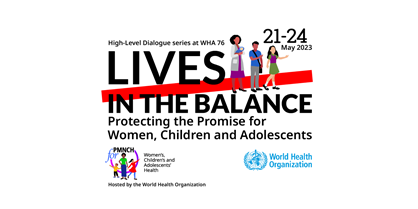“There are 1.8 billion adolescents and young people in the world today. As nearly one fourth of the world’s population, a thriving adolescent and youth population yields social, economic and health benefits for all; yet, for too long, their needs have been largely invisible. While enormous progress has been made in adolescent health at the global, regional, and national levels through concerted investment and action; much more needs to be done, especially to address the needs of those who are being left behind. Youth leadership, voice and experience is central to driving forward positive change.
The 2023 Global Forum for Adolescents, 11-12 October, coordinated by PMNCH, aims to increase global and national attention on adolescents’ health and well-being. Commitment mobilization is at the core of the global 1.8 Billion Young People for Change Campaign, coordinated by PMNCH and the Global Forum for Adolescents in October 2023, which will shine a spotlight on opportunities to accelerate progress and strengthen accountability in countries already prioritizing this population and their contextual needs for their well-being.
Objective
As the health community gathers at the World Health Assembly in Geneva, this dialogue will bring attention to the need to prioritize adolescent well-being and increase momentum for the Global Forum for Adolescents, and the 1.8 Campaign. This session will highlight the need for renewed political, financial and programme relevant commitments for adolescent well-being, and more specifically call for uptake of comprehensive sexual and reproductive health rights (SRHR) for adolescents and young people (AY) within Universal Health Coverage and Primary Health Care schemes, including financial protection and AYSRHR financing. Aligning with the What Young People Want initiative, the session will explore the need for innovative tools to inform commitment mobilization for adolescents and youth, and accountability for the same by meaningfully engaging them in the process.” -PMNCH
